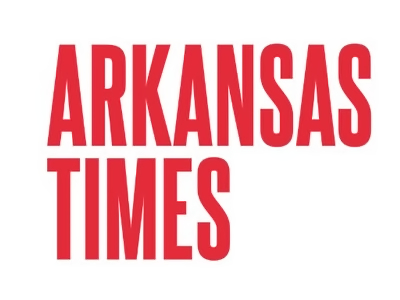
Lonoke County elected officials are raising concerns about a cryptocurrency mining business planned for an area off Highway 67/167 near Cabot, a location they say will cause problems and is too close to the Little Rock Air Force Base.
Last month, Lonoke County Judge Doug Erwin asked Interstate Holdings Blockchain to stop development of its planned cryptomining business in a cease-and-desist order that cited concerns over the site’s location in a floodplain. But at a Wednesday press conference at Cabot City Hall, county officials voiced bigger concerns. Cabot Mayor Ken Kincade, joined by Erwin and state Sen. Ricky Hill (R-Cabot), said he planned to fight the facility, according to a report from KATV:
“These centers cause loud disturbances and pollution that produce negative effects on our people, pets, wild animals, nature, and overall wellbeing,” said Kincade.
“We will not stand for this, and we will fight vehemently to address this company’s efforts. We will join with our neighbors in Lonoke County and our state senators, and representatives, and will do anything legally in our power to remove this from our community.”
Earlier this week, Hill told KATV the crypto business was too close to the air force base and could be a threat to national security.
“It’s not necessarily this facility itself, it’s what someone may do to hack into this facility to get information from our airbase,” Hill told KATV.
A filing with the Arkansas secretary of state’s office says Interstate Holdings Blockchain was incorporated by Steve Landers Jr, the son of businessman and former Little Rock mayoral candidate Steve Landers. The company’s website lists the business’ team as including Curtis, Michael Shady, Zane Vergason and Steven “Tripp” Joe Landers III.
Dustin Curtis, the company’s vice president, pushed back against the local officials’ concerns in an interview this week with Arkansas Money and Politics. Curtis said the facility meets requirements, has a lower noise level than the nearby highway and won’t be a drain on the power grid.
Curtis also threw cold water on the argument about proximity to the air force base. From Arkansas Money and Politics:
“If that’s the case, then every business within two miles of the air force base would have to abide by something, also, because any network or something that’s unsecure, if people can hack that, then they can hack anything, right?” he said. “This crypto mine is not going to be something that’s any different than another business.”
Crypto mines in Arkansas have attracted attention in the past couple of years, thanks in part to a law passed by the state Legislature in 2023 that curtailed the ability of Arkansas cities and counties to regulate the industry. Crypto mining consists of nothing more than high-powered computers performing math problems — the process by which bitcoin confirms transactions and creates new bitcoin. The operations can result in big bucks for their owners, but detractors say the facilities consume too much electricity and water and cause too much noise, potentially lowering property values nearby.
After blowback from residents of multiple communities, the Legislature changed the law earlier this year to allow for more local regulation, though the changes didn’t go far enough for some.
Last month, a Facebook group called “Concerned Lonoke County Citizens” posted a picture of a letter from Dustin Curtis that it said had been received by several residents. The letter said the facility would be a “state of the art data center” and would meet the “highest industry standards.” Curtis said the facility would be efficient and reliable but would also prioritize environmental sustainability.
Curtis also said the facility would follow all state and local laws and regulations and that it had taken steps to meet “all zoning, environmental and safety requirements.”
The company’s website lists a “corporate office” in Sarasota, Florida, and a “central office” in Bryant. The site lists investments with Sun Valley Distillery of Idaho, cryptocurrency products, real estate and billboards.
Last month, a federal judge temporarily blocked the state from enforcing a pair of state laws about foreign land ownership in a case involving an Arkansas County cryptocurrency mining operation.

